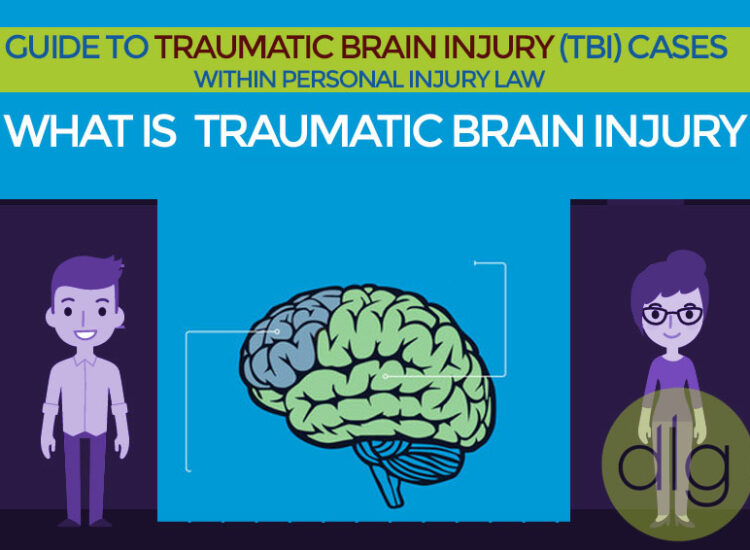Navigating the complexities of divorce can be daunting, especially in light of recent changes in Georgia’s family law. With these legal shifts, finding the best divorce lawyer in Atlanta is more crucial than ever. An adept attorney will not only be knowledgeable about the latest legal precedents but will also possess the strategic expertise necessary to guide clients through this emotionally charged process. Understanding the intricate legal landscape of divorce in Georgia is essential for anyone seeking effective representation.
Toc
- 1. Understanding Divorce in Atlanta: A Complex Legal Landscape
- 2. The Divorce Process in Georgia
- 3. Related articles 01:
- 4. Key Considerations When Choosing an Atlanta Divorce Lawyer
- 5. Navigating Property Division, Child Custody, and Alimony
- 6. Related articles 02:
- 7. Finding the Right Fit: Tips for Your Search
- 8. Conclusion: Empowering Your Legal Journey
- 9. Recent Developments in Georgia Divorce Law
Understanding Divorce in Atlanta: A Complex Legal Landscape

Divorce in Atlanta is anything but straightforward; it involves a multifaceted process that can be both emotionally taxing and legally intricate. Individuals considering divorce must grasp the various elements that influence the outcome of their cases, helping them identify the right divorce lawyer who can adeptly navigate these complexities.
Grounds for Divorce in Georgia: What You Need to Know
Georgia recognizes both no-fault and fault-based divorce grounds, providing multiple legal pathways for individuals seeking to end their marriage. Understanding these grounds is crucial when consulting divorce lawyers in Atlanta.
No-Fault Divorce Grounds
The no-fault ground for divorce in Georgia states that the marriage is irretrievably broken. This means that both parties agree that there is no chance for reconciliation. This ground simplifies the divorce process, often leading to a quicker resolution.
Fault-Based Divorce Grounds
Georgia also allows for fault-based divorces, which require one spouse to prove that the other spouse’s misconduct led to the breakdown of the marriage. The fault grounds include:
- Adultery: Engaging in sexual relations outside the marriage.
- Cruel Treatment: Physical or mental abuse inflicted by one spouse on another.
- Desertion: One spouse willfully abandoning the other for a continuous period of one year.
- Habitual Intoxication: Regular abuse of alcohol or drugs.
- Drug Addiction: Compulsive use of drugs that affects the marriage.
- Mental Illness: One spouse is found to be mentally incapacitated.
- Criminal Conviction: A conviction for a crime involving moral turpitude resulting in a sentence of two years or more.
- Impotency: Inability to engage in sexual intercourse at the time of marriage.
- Pregnancy: The wife was pregnant by another man at the time of marriage, without the husband’s knowledge.
- Force or Fraud: Coercion or deceit used to obtain the marriage.
- Incurable Mental Illness: A mental illness diagnosed and confirmed by two physicians.
- Intermarriage: Marrying someone within prohibited degrees of consanguinity.
Opting for a fault-based divorce can have practical implications. For instance, proving adultery might influence the court’s decision regarding alimony, but only if it can be demonstrably linked to the financial hardship of the wronged spouse. This nuance can significantly affect the outcome of a divorce case.
The Divorce Process in Georgia

Once the decision to divorce has been made, the process typically begins with filing a complaint in the appropriate court. The timeline for a divorce in Georgia can vary based on whether the divorce is contested or uncontested.
Divorce Process Timeline
In an uncontested divorce, both parties agree on all issues, which can often lead to a quicker resolution—sometimes as soon as 31 days after filing. Conversely, contested divorces, where the parties disagree on key issues like property division or child custody, can take several months or even years to resolve.
Key stages in the divorce process include:
- Filing the Complaint: The spouse initiating the divorce files a legal document outlining their requests.
- Serving the Other Party: The complaint must be served to the other spouse, who has 30 days to respond.
- Discovery Phase: Both parties exchange information and documents relevant to the divorce.
- Mediation: Many cases are required to go through mediation to attempt to resolve issues without going to trial.
- Trial: If a resolution cannot be reached, the case will proceed to trial, where a judge will make the final decisions.
Costs Associated with Divorce
The cost of a divorce can vary widely based on several factors, including the complexity of the case, attorney fees, and whether the divorce is contested or uncontested. While some individuals may seek cheap divorce lawyers in Atlanta, it is essential to prioritize quality representation over cost.
Factors influencing the overall cost include:
- Attorney Fees: Typically charged on an hourly basis or as a flat fee.
- Court Costs: Filing fees and additional expenses can add up quickly.
- Expert Witnesses: In complex cases, the need for financial experts or appraisers can increase costs.
- Duration of Proceedings: Longer divorce cases lead to higher legal fees.
Many attorneys offer flexible payment plans, and some provide divorce lawyers Atlanta free consultation to help clients understand their options without financial pressure. However, it is also important to acknowledge that financial constraints are a reality for many. Resources such as legal aid societies or pro bono services can provide much-needed assistance for those facing financial challenges during this difficult time.
Key Considerations When Choosing an Atlanta Divorce Lawyer

When searching for the best divorce lawyer in Atlanta, there are several factors to consider that can help ensure you find the right legal representation for your needs.
Experience and Specialization
When looking for the best divorce lawyer in Atlanta, experience and specialization in family law are paramount. A lawyer with a solid track record in Georgia’s family law can provide invaluable guidance through the complexities of your case. Specialization in specific areas, such as high-net-worth divorces or cases involving addiction, can also be beneficial.
Moreover, while not mandatory, a board certification in family law from the American Academy of Matrimonial Lawyers (AAML) signifies advanced expertise and commitment to the field. This certification can be an important factor to consider when evaluating potential candidates.
Communication and Client Service
Effective communication is crucial during the divorce process. Look for a lawyer who is responsive and takes the time to explain complex legal concepts in a way that is easy to understand. A lawyer who listens actively to your concerns and keeps you informed throughout the process will foster a more productive attorney-client relationship.
Legal Strategy and Approach
Different lawyers may employ varying strategies for handling divorce cases, including mediation, negotiation, or litigation. It is important to choose a lawyer whose approach aligns with your goals. Mediation may be preferable for those looking to resolve issues amicably, while litigation may be necessary in more contentious cases. Understanding the pros and cons of each method can help you make an informed decision.
Fees and Payment Options
Understanding a lawyer’s fee structure is essential to avoid unexpected costs. Most lawyers will charge an hourly rate, but some may offer flat fees for certain services. The keyword “divorce lawyers Atlanta free consultation” comes into play here, as many lawyers provide initial consultations at no charge. This is an excellent opportunity to discuss fees and payment options, including potential payment plans that can ease financial burdens during this challenging time.
Diversity and Inclusivity
Finding a lawyer who understands and respects your background and identity can be critical. Whether you are searching for female divorce lawyers in Atlanta GA or black divorce lawyers Atlanta, consider seeking representation that aligns with your values. Diverse representation can enhance your comfort level and ensure your unique circumstances are understood and addressed.
One of the most contentious aspects of divorce involves property division, child custody, and alimony. Understanding these elements can help individuals advocate for their interests effectively.
Property Division in Georgia
Georgia follows equitable distribution laws when dividing marital property during a divorce. This means that assets are divided fairly but not necessarily equally. Factors considered in property division include:
- Length of the Marriage: Longer marriages may result in a different division of assets.
- Contribution to the Marriage: Both financial and non-financial contributions are taken into account.
- Separate Property: Property owned prior to marriage or acquired through inheritance may not be subject to division. However, it’s important to understand that while separate property is generally protected, commingling of assets can complicate matters. For example, if separate funds are used to improve marital property, those funds may become subject to division.
In cases involving high-net-worth individuals, specialized valuation expertise may be needed to accurately determine asset values. Understanding these factors can help clients approach property division with realistic expectations.
Child Custody and Support
Child custody disputes can often be the most emotionally charged aspect of a divorce. Georgia courts prioritize the best interests of the child when determining custody arrangements. This may involve sole custody, joint custody, or visitation rights. Factors influencing custody decisions include:
- Parental Stability: The ability of each parent to provide a stable environment.
- Child’s Wishes: Depending on their age and maturity, a child’s preferences may be considered.
- Co-Parenting Ability: The willingness of both parents to cooperate in raising the child.
Child support is determined based on the needs of the child and the financial capabilities of each parent. Understanding these guidelines can help parents advocate effectively for their custody and support needs.
Alimony (Spousal Support)
Alimony, or spousal support, is not guaranteed in Georgia and is determined on a case-by-case basis. Factors influencing alimony decisions include:
- Financial Need: The requesting spouse must demonstrate a need for support.
- Ability to Pay: The paying spouse’s financial situation will also be considered.
- Duration of the Marriage: Longer marriages may result in more substantial support obligations.
Types of alimony may include temporary, rehabilitative, or permanent support, each serving different purposes based on the situation. Understanding these nuances can help individuals prepare for discussions regarding alimony during their divorce.
Finding the Right Fit: Tips for Your Search
Research and Referrals
When searching for the best divorce lawyer in Atlanta, thorough research is essential. Online reviews, bar association directories, and referrals from trusted friends or family can provide valuable insights into potential candidates. Look for lawyers with a strong reputation and a history of successful outcomes in divorce cases.
Initial Consultations
Many Atlanta family law attorneys offer free consultations to discuss potential cases. This is a crucial step in assessing compatibility and discussing the lawyer’s approach to your case. Use this opportunity to ask questions about their experience, fees, and overall strategy.
Asking the Right Questions
During initial consultations, consider asking the following questions to gauge the lawyer’s fit for your needs:
- What is your experience with cases similar to mine?
- How do you communicate with your clients, and how often can I expect updates?
- What is your fee structure, and are there any additional costs I should be aware of?
- What is your approach to mediation or litigation in divorce cases?
These questions can help clarify your expectations and ensure you choose a lawyer who aligns with your goals.
Conclusion: Empowering Your Legal Journey
Finding the best divorce lawyer in Atlanta is a vital step in navigating the complexities of divorce. By considering the factors discussed, individuals can secure the right legal representation to protect their interests and achieve favorable outcomes. Whether seeking divorce lawyers Atlanta free consultation or specialized representation, it is essential to take the time to research, ask questions, and make an informed decision.
Recent Developments in Georgia Divorce Law
As legal frameworks continue to evolve, staying informed about recent developments is essential. One significant trend in Georgia has been the increased emphasis on shared parenting plans, reflecting a broader societal shift toward co-parenting. Legislation has been introduced that encourages courts to consider joint custody arrangements more favorably, aiming to promote the involvement of both parents in a child’s upbringing.
Additionally, discussions around alimony calculations have emerged, with proposals suggesting a more standardized approach to determining spousal support, aiming for fairness and predictability in outcomes.
Take the first step by scheduling those initial consultations today to pave the way for a smoother transition during this challenging time. With the right legal partner by your side, you can navigate the intricacies of divorce with confidence, ensuring your rights are upheld and your future is secure.











